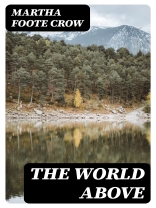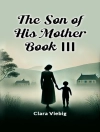In ‘The World Above, ‘ Martha Foote Crow offers an intricate exploration of the natural world through the lens of poetic prose, weaving together vivid imagery with philosophical reflections on humanity’s relationship with nature. Set against the backdrop of early 20th-century America, the book captures the spirit of environmental consciousness that was emerging during this period. Crow’s lyrical style, marked by rich descriptions and an evocative narrative, invites readers to ponder the profound connections between the earth and human existence, ultimately championing the idea of stewardship over the natural world. Martha Foote Crow was a prominent American naturalist and writer whose love for the environment inspired her literary endeavors. Her extensive background in botanical studies and her involvement with the early conservation movement deeply influenced her writings. This dual passion allowed Crow to articulate the beauty of the natural world, while simultaneously advocating for its preservation, which resonates throughout ‘The World Above.’ This book is a must-read for anyone interested in environmental literature and the power of nature writing. Through Crow’s eloquent and insightful prose, readers are encouraged to cultivate a deeper appreciation for the complexities of the environment and the necessity of its protection, making this work a timeless addition to the canon of nature literature.
عن المؤلف
Martha Foote Crow (1854–1924) was an American author and educator whose literary contributions were significant in the late 19th and early 20th centuries. She was born in Sackets Harbor, New York, and was known for her intellectual vigor, which led her to pursue higher education at a time when women’s academic opportunities were limited. Crow earned her A.B. degree from Syracuse University in 1884 and later an A.M. degree in 1889. Furthermore, she gained a Ph.D. from the University of Chicago in 1909, making her one of the first American women to earn a doctorate. Crow’s academic focus was on English and comparative literature, which informed her work as a writer and educator (Crow, 1909). Her literary style often combined didactic elements with narrative storytelling, aiming to educate as well as entertain her readers. ‘The World Above’ offers an exemplar of her narrative capability and her keen interest in themes like cultural values, personal growth, and the role of women in society. Crow’s contributions to literature and education have been acknowledged as pioneering efforts towards gender equality in academic circles. She served as the first president of the Association of Collegiate Alumnae, which later became part of the American Association of University Women, underscoring her lifelong commitment to women’s education (Gordy, 1928).












